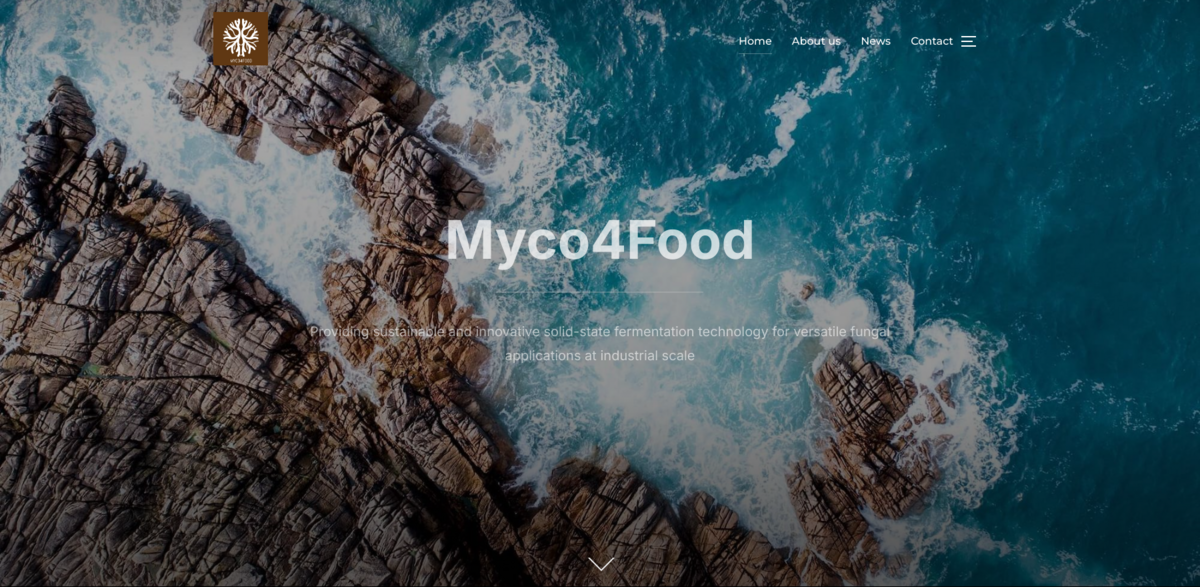What is the Myco4Food Project?
Myco4Food is all about providing sustainable and innovative solid-state fermentation technology for versatile fungal applications at an industrial scale. The project focuses on developing a scalable bioreactor system for solid-state fermentation (SSF) that aims to upcycle organic waste products into protein-rich food ingredients. This fermentation platform technology is designed to boost circularity within the food and agricultural sectors by turning organic waste into valuable resources.
Main Benefit: Upcycling Organic Waste into Protein-Rich Ingredients
At its core, Myco4Food is tackling one of the biggest challenges in sustainability—waste. Here’s what makes it stand out:
- SSF is an old technology, traditionally handled manually, but Myco4Food uses automatically controlled, AI-based technology to take it to the next level.
- This advanced approach leads to better utilization of existing resources, making the process more efficient and cost-competitive.
- The result? Sustainably produced compounds that are affordable for both industry and society.
- SSF promotes a closed-loop system by recycling and upcycling industrial side streams into value-added products.
- Compared to liquid fermentation, SSF requires minimal water, less wastewater treatment, and consumes less energy.
Understanding Solid-State Fermentation (SSF)
SSF isn’t new—it’s been part of human culture for ages, used in making traditional foods like cheese, bread, soy sauce, and tempeh. But it’s not just about tradition anymore. SSF is now being explored for cutting-edge applications such as producing enzymes, meat alternatives, and even bio-based building materials. With climate change and environmental concerns on the rise, renewing SSF technology is key to creating a more sustainable and eco-friendly future. The magic lies in how fungi naturally colonize and utilize substrates, which under controlled conditions, leads to the development of unique textures and valuable fungal metabolites.
Challenges in Scaling Up SSF and How Myco4Food Solves Them
Scaling up SSF isn’t a walk in the park. The process faces hurdles like limited visibility of substrates and microorganisms, lack of agitation, and no non-destructive monitoring methods. These factors make it tough to achieve uniform fermentation and consistent product quality. Until now, large-scale SSF success has been limited to specific substrates and fungi, with fermentation conditions often determined by trial and error. Myco4Food is changing the game by developing an innovative platform technology that tackles these challenges head-on.
Innovative Technology Behind Myco4Food
The project’s technology is built around two main components:
- Novel Bioreactor Design: Equipped with advanced sensors and control units, this design ensures comprehensive data collection, homogeneous fermentation conditions, and precise microclimate control.
- Backend System: This AI-assisted control system processes real-time data to predict fungal physiological variables and adjust operational parameters, optimizing fermentation and minimizing unwanted metabolites or sporulation.
Plus, the modular design means the system can be customized to fit different processes, making it super flexible and scalable.
Impact of Myco4Food on Sustainability and Circular Economy
- SDG 2: Zero Hunger – by creating protein-rich food ingredients from waste.
- SDG 9: Industry, Innovation, and Infrastructure – through advanced bioreactor and AI technology.
- SDG 12: Responsible Consumption and Production – by promoting circularity and waste upcycling.
- SDG 13: Climate Action – reducing environmental impact via sustainable fermentation processes.
- SDG 15: Life on Land – minimizing waste and supporting eco-friendly production methods.
The Future of Protein Ingredients with Myco4Food
Myco4Food is on a mission to transform how organic waste materials are used, turning them into the protein ingredients of the future. By combining traditional fermentation wisdom with cutting-edge AI and sensor technology, it’s paving the way for a more sustainable, efficient, and circular food industry. The project’s innovative approach not only addresses current challenges in SSF but also opens doors to new possibilities in food production and beyond. It’s a promising step toward a greener, more resourceful world—one fungal fermentation at a time.


















